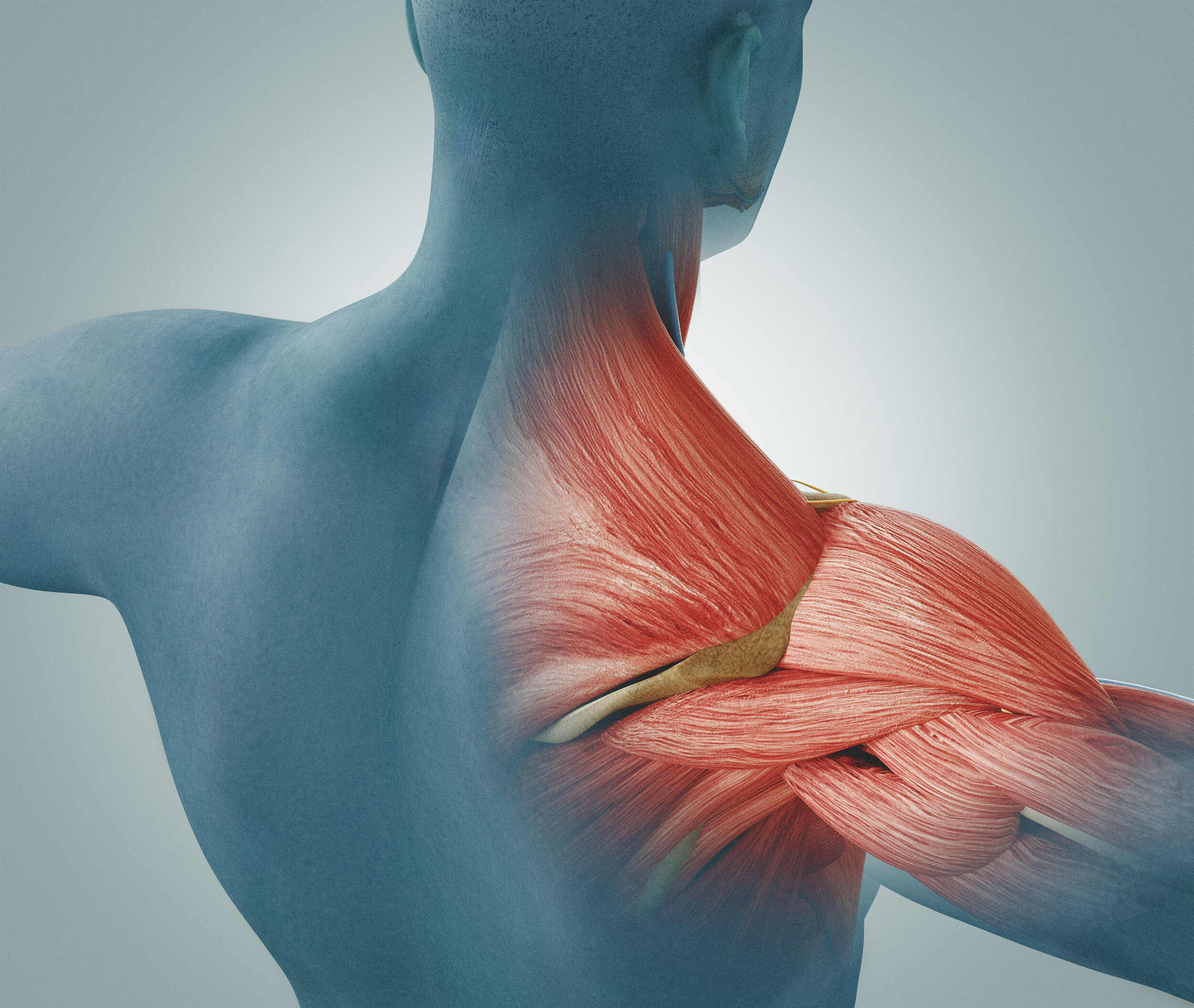
changing the way
THE BODY WORKS
shoulder
If you experience grinding, clicking, or lack of range of motion as you move your shoulder, tight pectoralis muscles are most likely a culprit of this pulling the joint out of alignment. Think of it like taking a train off its tracks.
Illiotibial Band
Just like the shoulder “train track” example, the illiotibial band (IT band) can get so tight it can pull on the knee cap causing friction when can then lead to patella-femoral syndrome knee pain (also known as Runners Knee).
Neck / Traps
Usually posture related which leads to tight pectoralis muscles. Tight pec muscles can worsen the symptoms of neck and trap pain. Other symptoms include: tension headaches, migraines, jaw pain, or numbness, tingling, or bring sensations down the arm and sometimes into the hand.
Back
Most frequently treated. Usually poor posture can cause some discomfort anywhere throughout the back muscles. With unnoticed frequent use, back muscles tend to be more susceptible to knots, adhesions or lactic acid build up.
Low Back
If you experience low back pain, usually that indicates that the front of your hips are tight, which cause shortening and compression of the lower lumbar spine. Very common amongst people who sit for long periods of time or jobs that involve wearing a utility belt.
glutes
Correlated to the hips, tight glute muscles can contribute to low back pain and is common amongst those who sit or stand for long periods of time. Other symptoms may include: pseudo sciatica pain, not fully being able to contract the muscle, or numbness, tingling, or burning down the leg.

Curious to learn more about which types of services are offered? Check out which in-person service offerings are available!



